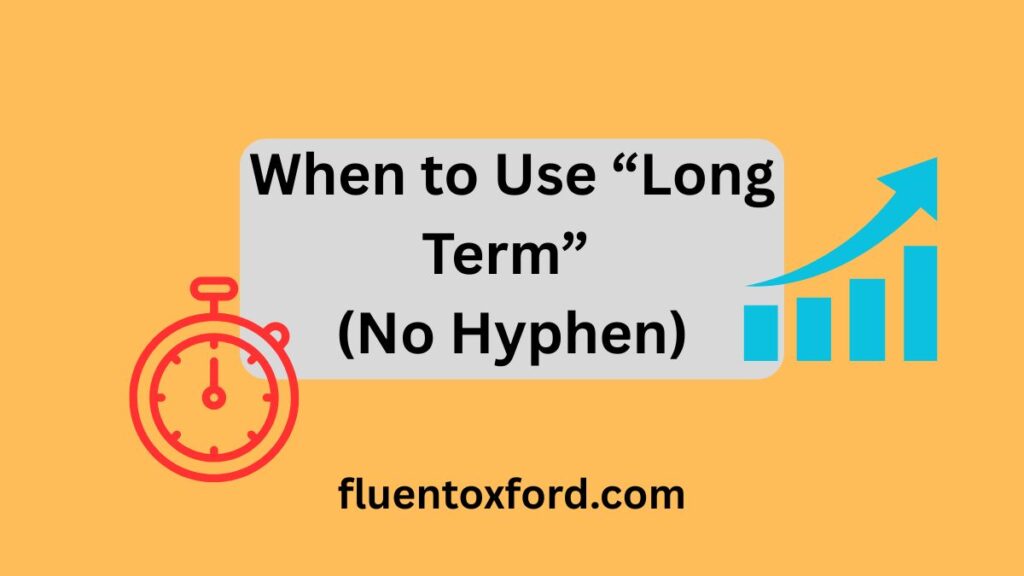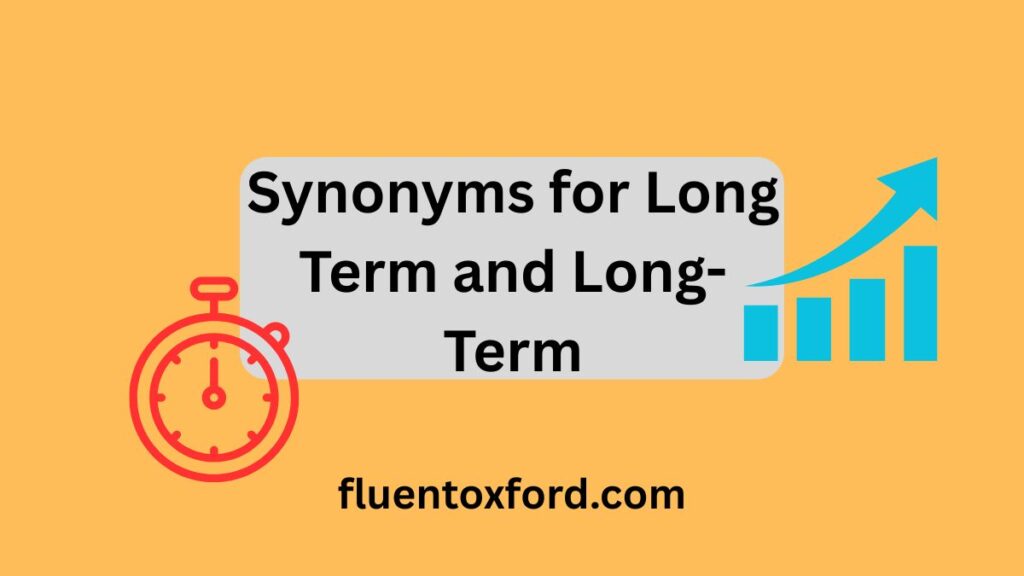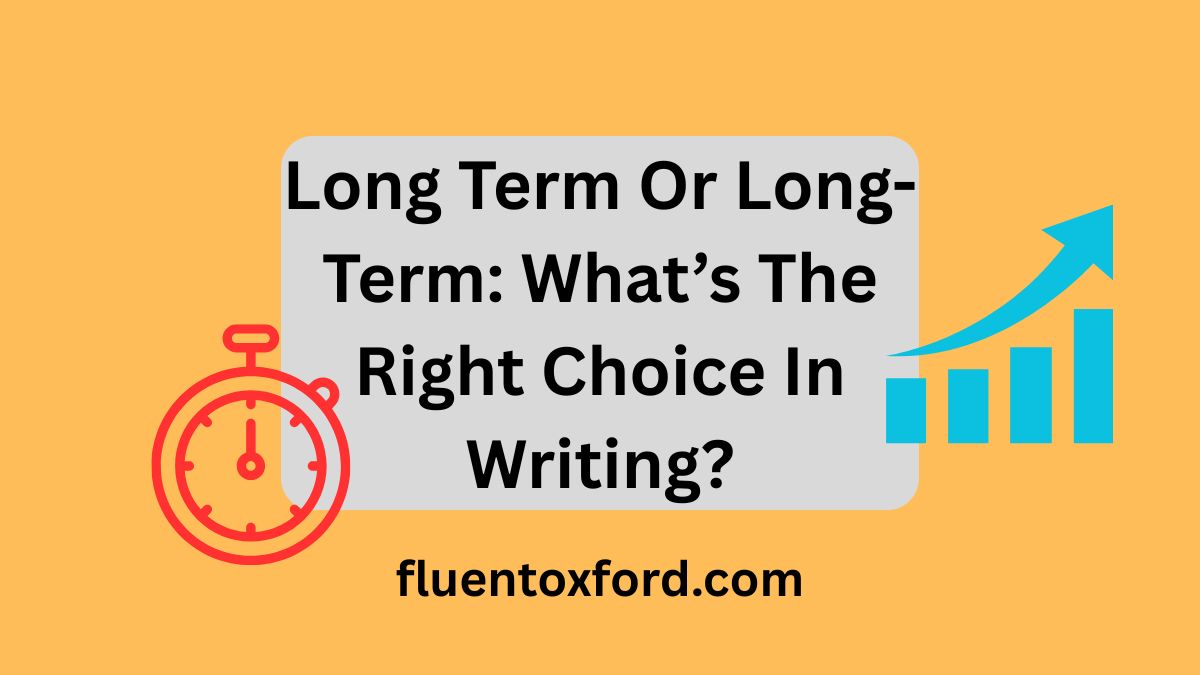In writing, the phrase “Long Term or Long-Term: Right Choice” refers to the grammatical and stylistic decision between using the unhyphenated noun phrase “long term” and the hyphenated adjective “long-term.” While both forms are correct, their usage depends entirely on context. “Long term” typically functions as a noun, often found in phrases like “over the long term,” whereas “long-term” is an adjective that modifies nouns, as in “long-term goals.” Understanding this distinction is essential for producing clear, professional, and grammatically accurate content.
Precision in language is more than just grammar—it’s a mark of credibility. A hyphen might seem minor, but the difference it creates can significantly impact the tone and clarity of writing. Whether you’re crafting business reports, academic essays, or online content, mastering such nuances separates strong writing from the ordinary. In a world where attention spans are short, small errors can lead to big misunderstandings.
Exploring the “Long Term or Long-Term: Right Choice” ensures writers use the correct form in the right context, enhancing both readability and authority. Learning the “Long Term or Long-Term: Right Choice” helps build confidence in writing and ensures that the message is not just heard but also respected.
Why the Confusion Exists
There’s a reason many people get confused between “long term” and “long-term”. The issue comes down to grammar and context. Specifically:
- The terms play different grammatical roles.
- Style guides like AP, APA, and Chicago have slightly different rules.
- Grammar checkers don’t always flag incorrect usage.
- The hyphenation rules can seem inconsistent unless you know the logic behind them.
The good news is, once you understand how to use them correctly, it becomes second nature.
The Grammar Behind Hyphenation
To get this right, you need to understand the grammar involved.
“Long term” is a noun phrase, which means it acts as a noun.
“Long-term” is a compound adjective, meaning it modifies a noun that follows it.
The hyphen is used to connect two words that work together as an adjective description.
When to Use “Long Term” (No Hyphen)

Use “long term” when the phrase stands alone as a noun, usually referring to an extended period of time. You’re using it to talk about time itself.
Examples:
- We are investing for the long term.
- Think about the long term, not just short-term gains.
- In the long term, this decision will pay off.
Here, “long term” is a thing — it’s the object of focus, making it a noun phrase.
When to Use “Long-Term” (With Hyphen)
Use “long-term” as a compound adjective — that is, when it appears before a noun and describes it.
Examples:
- She accepted a long-term contract.
- This is part of our long-term business strategy.
- They made a long-term investment.
The hyphen shows the words belong together and prevents misreading.
Comparison Table: Long Term vs Long-Term
| Usage | Correct Form | Example |
| Noun Phrase | long term | We’re planning for the long term. |
| Adjective | long-term | This is a long-term plan. |
Use “long term” when it acts like a noun. Use “long-term” when it describes something.
What Do the Style Guides Say?
Different writing styles have different rules, but most agree on the basic distinction:
APA Style:
- Use “long-term” as an adjective: long-term effects.
- Use “long term” as a noun: in the long term.
Chicago Manual of Style:
- Supports clear, consistent hyphenation for compound adjectives.
AP Style (Associated Press):
- Use “long-term” before a noun.
- Use “long term” after a noun or verb.
Quote from the AP Stylebook:
“Always hyphenate compound modifiers before a noun: long-term project. Don’t hyphenate after the noun: the project is long term.”
Common Mistakes to Avoid
Writers often trip up on these points:
- Using “long-term” at the end of a sentence when it should be “long term”
- Forgetting the hyphen before a noun
- Confusing plural usage or treating it like a standalone word
Incorrect:
We made a long term investment. ❌
Correct:
We made a long-term investment. ✅
Incorrect:
The benefits are long-term. ❌
Correct:
The benefits are long term. ✅
Quick tip: If the phrase comes before a noun (like “plan”, “goal”, “project”), it needs a hyphen.
Synonyms for Long Term and Long-Term

You don’t always have to use “long term” or “long-term”. Here are some good alternatives:
For “long term” (noun phrase):
- Extended period
Lasting a long time.
Example: She plans to invest for an extended period. - Long duration
Spanning a lengthy time.
Example: Recovery from surgery often takes a long duration. - Lengthy span
Covering many years.
Example: The data was collected over a lengthy span. - Prolonged period
Time that stretches far.
Example: He stayed abroad for a prolonged period. - Sustained timeframe
Maintained for years.
Example: The company grew over a sustained timeframe. - Extended timeframe
Time reaching far ahead.
Example: They planned their strategy for an extended timeframe. - Ongoing future
Continuing ahead in time.
Example: These changes will benefit us in the ongoing future. - Distant future
Far-off time to come.
Example: We must prepare for the distant future. - Far horizon
Future seen far ahead.
Example: Their vision focuses on the far horizon. - Years ahead
Upcoming future years.
Example: This policy will affect us in the years ahead.
For “long-term” (adjective):
- Extended
Lasting for a while.
Example: They entered an extended contract with the supplier. - Prolonged
Continuing for long.
Example: The patient needed prolonged care after surgery. - Sustained
Maintained over time.
Example: The company showed sustained growth for years. - Enduring
Lasts through time.
Example: They developed an enduring partnership. - Ongoing
Still continuing today.
Example: The team is working on an ongoing project. - Lasting
Stays for long time.
Example: She made a lasting impression at the meeting. - Chronic
Long-term, persistent issue.
Example: He suffers from chronic back pain. - Permanent
Not expected to change.
Example: The job comes with permanent benefits. - Persistent
Repeats or continues regularly.
Example: The region faces persistent economic problems. - Durable
Stays effective long-term.
Example: They invested in durable solutions for climate change.
Note: Don’t switch out synonyms without checking if they match the sentence structure. Not all synonyms fit both versions.
Real-World Examples in Context
Let’s look at some real examples from news and media sources:
According to Business Insider:
“Tech companies are focusing on the long-term potential of generative AI.” ✅ (Adjective)
From The Guardian:
“In the long term, energy prices are expected to drop.” ✅ (Noun Phrase)
From a poorly edited blog:
“We plan to make long term changes to our business model.” ❌
Correction:
“We plan to make long-term changes to our business model.” ✅
These examples show how writing clarity comes down to using the correct form in the right spot.
Origin and History of “Long Term”
“Long term” entered English usage during the early 20th century, especially in business, finance, and government planning.
The use of the hyphen became more popular in the 1950s as editors and style guides began to enforce hyphenation rules more strictly to improve readability and writing style.
As syntax parsing and semantic disambiguation became important in digital grammar tools, the need for consistent, rule-based usage of terms like “long-term” grew even more relevant.
Why It Matters for SEO and Professional Writing

Inconsistent or incorrect use of terms like “long term” and “long-term” can impact:
- Reader trust
- Website bounce rate
- Professional tone
- Document readability
- Search engine ranking
Search engines like Google use Natural Language Processing (NLP) techniques like tokenization, syntax parsing, and Named Entity Recognition to evaluate your content. Using the wrong term can affect how your page is ranked for related queries.
For example:
- Using “long term goals” without a hyphen might get interpreted differently than “long-term goals”
- Mixed usage in the same article looks sloppy and unedited
Consistency and correctness lead to better SEO, higher reader engagement, and a more polished brand image.
Case Study: Company Report
Scenario:
Two versions of an annual report were prepared. One used “long term” and “long-term” properly based on context. The other used only “long term” throughout.
Results:
- The correctly formatted version was praised for being professional and easy to read.
- The other drew criticism from stakeholders, who found the writing unclear.
Takeaway: Even small grammar issues affect perception in high-stakes professional documents.
Memory Trick to Remember the Rule
Here’s a quick way to keep it straight:
If it comes before a noun, hyphen it down.
Examples:
- Long-term success (correct — before a noun)
- In the long term, you’ll see progress (correct — stands alone)
Conclusion
Understanding the Long Term or Long-Term: Right Choice helps writers avoid simple mistakes. Using “long term” as a noun and “long-term” as an adjective makes your writing clear. This small grammar rule can make a big difference in how professional your work looks. It also shows that you care about details, which readers appreciate.
In daily writing, the Long Term or Long-Term: Right Choice can improve the way you share ideas. Whether you write for school, work, or online, using the right form shows good writing habits. It helps readers trust your message and understand it better. Always check the context, and you’ll make the right choice every time.
FAQs
1. Is “longterm” a correct spelling?
No, “longterm” (one word) is incorrect. Always write it as “long term” (noun) or “long-term” (adjective) depending on the context.
2. Do major style guides agree on how to use “long-term”?
Yes. AP, APA, and Chicago Manual of Style all recommend using “long-term” as an adjective before a noun and “long term” as a noun phrase elsewhere.
3. Has AI grammar software caught up with this distinction?
Yes. Tools like Grammarly, ProWritingAid, and Microsoft Editor now correctly flag improper usage based on sentence structure.
4. Does misuse of hyphenation impact SEO in 2025?
It can. Search engines analyze context using NLP, so inconsistent usage may affect readability and semantic indexing, especially in professional content.
5. Are there any industries where this matters more?
Absolutely. Fields like finance, legal writing, academic publishing, and business strategy require precise grammar for credibility and compliance.

As an admin at Fluent Oxford, Maida Queen is the driving force behind our vibrant learning community. With a deep passion for English language education, she ensures that our platform remains a dynamic, engaging, and supportive space for learners worldwide.
Maida expertly manages content, assists users with their grammar and fluency queries, and fosters an interactive environment where learning feels effortless and enjoyable. Whether you need guidance, motivation, or just a friendly face in the Fluent Oxford community, Maida is always there to help you reach your English language goals.








